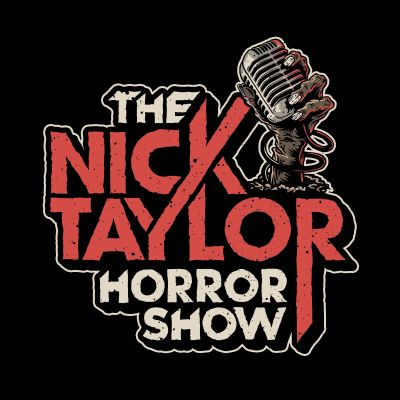Exploring the techniques, strategies, and key pieces of advice for aspiring horror directors, straight from the minds of some of the greatest filmmakers and creators in horror. Host Nick Taylor engages in one-on-one conversations with directors, producers, writers, actors and artists to uncover the keys to their creative and professional success in the horror business.
https://nicktaylor.com/
episode 105: SWALLOWED Director, Carter Smith [Episode 105]
Welcome to The Nick Taylor Horror Show! Carter Smith is a writer, director, and photographer who has directed movies such as The Ruins, Midnight Kiss, and, most recently, Swallowed.
Swallowed is an independent body horror film about two friends who find themselves swallowed up in a drug smuggling operation where they ingest drug-filled sacs and trigger a chain of horrific events.
This is my second interview with Carter, so if you're interested in his director origin story, including his work with Paramount and Blumhouse, you should definitely go check out episode 34.
In this interview, we cover the making of Swallowed, the benefits of working with a lower budget and smaller crew, and how to puppeteer monstrous worms. All this and so much more on the Nick Taylor Horror Show.
Here are some key takeaways from this conversation with Carter.
Write what you can make on your own.
This is a recurring theme in these interviews. As both Robert Rodriguez and Kevin Smith did with their first movies, Carter took an inventory of everything he had access to and then built his script around that. This included a white van and a hunting lodge, both of which appeared in the movie. It's easy to write beyond your budget, but it's still important to maximize production value; everyone typically has access to something that can boost production value; a house, property, a friend with a boat, etc. Figure out yours and write a script around it.
Make your second first film.
Common advice or direction in the film industry has a lot of directors always trying to substantially increase their budget with every subsequent movie. It's what agents advise, but it can be creatively limiting and leave you in a desert for years. If you have a movie under your belt, doing one at a lower budget is not a step backward, so it shouldn't be for your ego (or your agents). Carter has done movies for Paramount and Blumhouse but was itching for a project and went for it with his own money. It's ballsy, for sure, but it's what artists do.
Write with the budget in mind.
With his budget so low, Carter surmised early on that he and his crew could shoot at a rate of 6 pages per day, so he structured his script entirely around this shooting schedule and made sure that each scene only lasted 6 or 12 pages so he could maximize locations and minimize company moves. As much as it may feel like you're stifling creativity, putting these guardrails in early in your creative process can save a substantial budget and, as Carter says, can actually be creatively liberating since limitations force creativity.
Low-budget movies mentioned:
- Horrible Way to Die
- Hellbender
- Sun Don’t Shine
- Are we not Cats
- Always Shine
- Toad Road
- The Deeper you dig
- Blue Ruin
- She Dies Tomorrow
- Pyewacket
Books:
- Like Brothers by The Duplass Brothers
Thank you for listening! Don't forget to subscribe.
-----
Produced by Simpler Media
